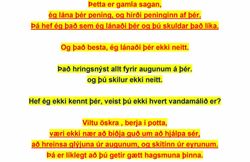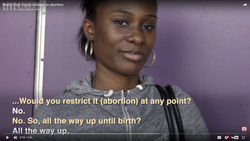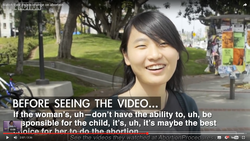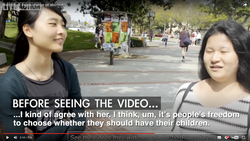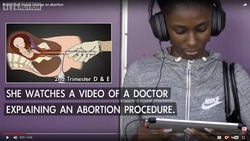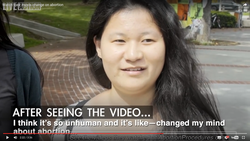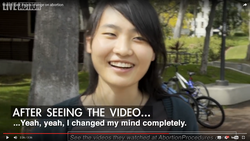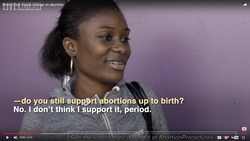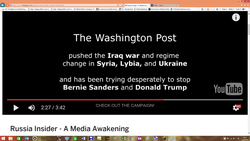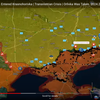Bloggfærslur mánaðarins, október 2016
Hugur og hönd, skapa allt samfélagið, og alla neysluna. Þegar við segjum, það eru engir peningar til, þá er það eins og að segja, að það sé ekkert bókhald til.
30.10.2016 | 11:31
Sett á blogg: Bjarni Jónsson
Þú segir, sem er rétt.
Grundvallaratriði velferðarkerfisins, þ.e. aukinnar velferðar, er framleiðniaukning atvinnuveganna.
Ég segi, sem er rétt.
Hugur og hönd, skapa allt samfélagið, og alla neysluna.
Þegar við segjum, það eru engir peningar til, þá er það eins og að segja, að það sé ekkert bókhald til.
Bókhald framleiðir ekkert.
Við notum bókhaldið, til að hafa yfirsýn yfir framleiðsluna og öll viðskipti í þjóðfélaginu.
000
viðbót
Ekki segja, það vantar bókhald, peninga fyrir innviðunum í þjóðfélaginu.
Betra er að segja, að það vanti mannskap, eða útlendan gjaldeyrir til að hægt sé að vinna verkefnið.
Þá gæti komið til greina að fá til dæmis Pólverja í verkefnið.
Ef það vantar gjaldeyrir, þá er að vera duglegri að afla gjaldeyris, það er bókhalds inneign hjá öðrum þjóðum.
Einnig kemur til greina að lækka gengi íslensku krónunnar, íslenska bókhaldsins, til að innlend eyðsla dragist saman.
Laun og ýmsar greiðslur, verða að samsvara tekjum, þá þurfum við ekki að lækka gengið, á bókhaldinu.
Auðvitað lækkum við fyrst svindl bónusa og yfir launin, og allt sé upp á borðinu.
Lærum að svindla ekki, allir.
Stundum er hnupl árátta, sjúkdómur.
Hjálpum hver öðrum.
000
Við eru ekki búnir að gleyma því að fjármálakerfið setti allt á hausinn,
til að geta náð eignunum af fólki og fyrirtækjum. *
Þetta stendur allt í blogginu mínu.
Læra nústaðreyndirnar, og koma með lausnirnar í gegn um sköpunina.
Við erum raunsæir, en um leið leitandi að nýjum lausnum, skapandi.
Þegar ég segi þetta.
Þarna ætti að vera slóð við hverja setningu til að skýra málið, en ég set aðeins eina.
Egilsstaðir, 30.10.2016 Jónas Gunnlaugsson
hér koma tvær slóðir
*Þetta er gamla sagan, ég lána þér pening, og hirði peninginn af þér. Þá hef ég það sem ég lánaði þér og þú skuldar það líka. Og það besta, ég lánaði þér ekki neitt. Er ráð, að hreinsa glýjuna úr augunum, og skítinn úr eyrunum?
000
Verum fulltrúar gnægta, lausna.
Bloggar | Breytt s.d. kl. 18:30 | Slóð | Facebook | Athugasemdir (0)
Lestarkerfi eða niðurgreidd flug?
Mbl.is
000
Í þessari samgöngu umræðu, langar mig að endurtaka, að nauðsynlegt er að hafa tvo flugvelli á suðvesturlandi vegna eldgosa hættu á Íslandi.
28.3.2016 | 08:14
Jónas Gunnlaugsson | 16. desember 2015
Egilsstaðir, 27.10.2016 Jónas Gunnlaugsson

|
Lestarkerfi eða niðurgreitt flug? |
| Tilkynna um óviðeigandi tengingu við frétt | |
Bloggar | Slóð | Facebook | Athugasemdir (0)
Til að fá vitræna umræðu um fjármálin, þarf að byrja á því að skilja hvað fjármál eru.
Fjármál eru bókhald.
Peningar eru bókhald.
000
Sett á blogg: Bjarni Jónsson
Fjármálakerfið til fólksins
000
Og þá spyrjum við, hvernig högum við bókhaldinu.
Á stór hluti af sköpuðum peningum, bókhaldi, að fara í Heilbrigðiskerfið, skólakerfið, vegakerfið og alla innviði þjóðfélagana?
Þá rennur peningasköpunarbókhaldið, í gegn um þessa aðila, innviðina, og til fólksins fyrir að viðhalda rekstri þjóðfélagsins, og byggja innviði þjóðfélagsins upp.
Á sama máta verður sköpunarbókhaldið fyrir atvinnuuppbygginguna, og þetta kemur í stað skatta.
Allt kemur frá fólkinu, vinnan, hugsunin, sköpunin, svo að þetta er rökrétt.
Þú talar um banka í einkaeigu, og samfélagsbanka.
Hver segir að einhver megi ekki reka banka, en að hann eigi skrifaða tölu í bankabókhaldinu og segist svo eiga íbúðarhúsið, nær engri átt.
Við viljum ekki sjá einhverja sem taka 50, 100 eða 200 % af öllu sem við gerum.
Við vitum að stóru félögin á heimsvísu, með dreift eignarhald, lenda strax í eigu stjórna félagana.
Einhver fær lán í banka til að kaupa 6 til 7 % hlut í félögunum.
Þá er komin meiri eign, en eignarhlutur þeirra sem mæta á aðalfund.
Þegar þú ert búinn að ná stjórnar taumunum í félaginu, ræður þú 100 lögfræðinga til að kaupa bréf í félaginu, til dæmis 10%.
Þá ferð þú stjórnarformaðurinn með umboð félagsins á aðalfundum.
Þannig ert þú búinn að yfirtaka félagið.
Þessi aðferðafræði er vel þekkt.
Þetta verður að vera grundvöllur vitrænnar umræðu um fjármálin, peninganna, það er bókhaldið.
Lífeyririnn er einnig aðeins bókhald, og ekkert getur greitt lífeyri nema þróttmiklir framleiðslu atvinnuvegir og skilvirkt þjóðfélag.
Nú setjum við alla á ríkisstyrkta lífeyririnn, og skoðum hvort það gengur, og ef það gengur ekki þá lagfærum við allt lífeyriskerfið.
Skoða gegnumstreymis lífeyriskerfi.
Skoða hvort gáfulegt er að hafa sjóð til uppbyggingar, fyrir Ísland, og á heimsvísu.
Þessi sjóður gæti verið hugsaður til að byggja upp löndin, innviði og atvinnulíf, ekki gjafa fé.
Ef eitthvert land vill fá sitt RARIK, sína Landsvirkjun, og svo framvegis, þá getum við hjálpað til.
Að sjálfsögðu viljum við að einstaklingurinn geti nýtt sköpunargáfu skipulagshæfileika sína.
Við þurfum að lesa um nústaðreynda trúar manninn í okkur,
Og svo skaparann í okkur, sem drífur áfram allar framfarir.
Ekki tíma,
Egilsstaðir, 26.10.2016 Jónas Gunnlaugsson
Villuleit í boði Púka
Bloggar | Breytt s.d. kl. 15:41 | Slóð | Facebook | Athugasemdir (0)
The Government ... has shamefully abdicated its traditional responsibility to create a supply of money, publicly, and debt-free, for the people.
26.10.2016 | 08:38
Otherwise, we will continue with the situation today where the private banking system is acting as the national money supply mechanism and levels of debt will continue to go through the roof, along with bank profits, and our taxes!
http://www.ismennt.is/not/jonasg/jg/jg06/deptfreemoney/deptfreemoney.html
000
Prosperity: Freedom from Debt Slavery, is a four page monthly journal on Money Reform.
To subcribe follow this link
Our Money Reform brings Democracy and Freedom from Debt Slavery
The following speech was delivered by Alistair McConnachie at the American Monetary Institute's 2005 Monetary Reform Conference, at the Essex Inn, 800 South Michigan Avenue, Chicago, on Thursday 29th September 2005, at 6pm. It was published in the September 2005 issue of Prosperity.
Thank you. I have been asked to speak about the Bank of England, and its place within the monetary system of the UK. After that, I want to tell you about the monetary reform which we in the United Kingdom are proposing.
Tomorrow we are going to be hearing about the US Federal Reserve, from Mr William Hixson -- author of the two wonderful books, Triumph of the Bankers and A Matter of Interest, and one of the founders of COMER, the Canadian-based Committee on Monetary and Economic Reform, from whom we will also be hearing this evening.
Now, the Federal Reserve is differently constituted from the Bank of England, but given the political will, both institutions are able to be reformed to deliver the results which we as Money Reformers are seeking.
"Given the political will" -- creating that political will, is the real challenge for us.
THE BANK OF ENGLAND
The Bank of England is Britain's Central Bank. Just as individuals and businesses keep accounts at commercial banks, so commercial banks and government keep accounts at the Central Bank -- in our case, the Bank of England.
The Bank of England began in 1694 when King William needed money to fight a war against France. A company promoter by the name of William Paterson came up with the idea of a bank. It would raise £1.2 million and then lend a million to the Crown, at a high rate of interest. In return for the loan, it was incorporated by Royal Charter as the "Bank of England" which became the government's banker. Thus began the British national debt.
It wasn't until 1946 -- 252 years after it was first established -- that the Bank was nationalised and brought more firmly under the control of the British government. In practice this didn't change very much although it meant that the State acquired all the shares, and that Governors and Directors were to be chosen by the Sovereign on the advice of the Prime Minister. Further, the Chancellor of the Exchequer reserved powers to give the Bank formal directions.
Richard Greaves has written a very good article, which I commend to you, in the January 2005 issue of Prosperity, "Shedding some Light on the Bank of England". Copies are at the back of the hall, and I'm using his research when I tell you that:
Today, operating as it does as the bankers' bank, it is to the commercial banks (ie the High Street banks) what the commercial banks are to the public.
Just as we may deposit money with commercial banks, so commercial banks in turn keep deposits with the Bank of England. The amount of cash that a commercial bank can buy up from the Bank of England to meet its customers' cash withdrawals is limited to the amount of deposits it has in its account at the Bank of England and/or what it can borrow from the Bank of England or from other banks. Commercial banks borrow from the Bank of England in exactly the same way that individuals and businesses borrow from commercial banks…
However, it is much more significant to note that whilst the Bank of England is now state-owned the fact is that our money supply is once again almost entirely in private hands, with 97% of it being in the form of interest bearing loans of one sort or another, created by private commercial banks.
Indeed this is now where the real power resides -- with commercial banking.
The Bank of England is now essentially a regulatory body that supports and oversees the existing system. It is sometimes referred to as "the lender of last resort" in so far as one of its functions as the bankers' bank is to support any bank or financial institution that gets into difficulties and suffers a run on its liquid assets. In these circumstances, it is not obliged to disclose details of any such measures, the reason being so as to avoid a crisis in confidence -- confidence being something on which the current system is very dependant.
However beyond that, it is no longer a major player in the lending/money creation market. Its annual accounts reveal that its loans and profits are only a fraction of those of a major commercial bank such as Barclays, and it only holds a very small amount of government stocks, so it is no longer really lending to government either -- that function has largely passed to the merchant banks.
Most of its profits come from what is known as the "issue department" -- the department of the bank which is responsible for printing and distributing bank notes and coins. These are purchased by the high street banks to meet their customers' demands for cash and the various banks have their accounts at the Bank of England debited accordingly. Basically, the profits from this operation belong to the state and are transferred to the Treasury, thus being added to the public purse.
THE PROFITS FROM THE NOTE ISSUE GO TO THE PUBLIC PURSE
The Bank of England Annual Report 2005 states that for the year 2004/2005, "the profits of the note issue were £1,618 million (2003/2004 £1,234 million). The change was the net effect of more notes in circulation on average during the year and higher interest rates. These profits are all payable to HM Treasury." (p.34)
http://www.bankofengland.co.uk/publications/annualreport/2005report.pdf
So we see here that the Bank of England is quite open about the fact that the profit from its note issue -- that is, the difference between what it earns by selling the notes at face value to the commercial banks, minus its cost of printing, minting and distributing them -- goes to the Treasury.
That is, the profit goes right into the public purse as an effective debt-free input -- this benefit is traditionally termed "seigniorage".
Now imagine if everyone was using notes and coins instead of electronic forms of money. The debt-free benefit to the public purse would be immense! It would be in the billions and billions of pounds, and taxes would fall massively.
Indeed, in 1948, around half of all money in circulation (46%) was notes and coins which were created debt-free by the government, with the profits going directly to the public purse.
However, as the demand for electronic, cheque book and credit card money has risen, the demand for notes and coins has fallen.
This means that most money circulating in society is now private bank debt-based money in electronic and cheque book form -- around 97% of money circulating.
As a result, the private banks are making vast profits from this situation. And because the government has an ever-declining source of seigniorage revenue, our taxes go up to repay the money which the government has to borrow from this private banking system!
*****
At the same time, more and more people are swallowed up in ever-rising levels of private debt.
Over the years, the Government has simply ignored what has been happening to the money supply. It has ignored the fall in the demand for notes and coins and its subsequent loss of seigniorage.
In other words, it has shamefully abdicated its traditional responsibility to create a supply of money, publicly, and debt-free, for the people.
*****
As Money Reformers, we are saying that in addition to regulating the banking system, it is the responsibility of government to maintain a basic stock of money in circulation which is free from debt at its point of creation.
If society enjoyed the benefit of a 46% debt-free money stock in 1948, then there is no reason why we shouldn't continue to enjoy such a benefit today -- although this doesn't necessarily have to be in the form of notes and coins. It can be in the form of electronic money, created debt-free for public purposes.
*****
Otherwise, we will continue with the situation today where the private banking system is acting as the national money supply mechanism and levels of debt will continue to go through the roof, along with bank profits, and our taxes!
*****
FOCUSING OUR MESSAGE
So what do we propose to do about all this?
If we want to take an idea into the mainstream, we need to concentrate on one of the core issues, and we need to come up with a practical policy to apply it, which is politically workable … in the circumstances of the moment.
Focusing in this way is a core strategy of the American Monetary Institute.
If we don't have focus, then the message won't take off and fly. So, while I am not going to speak about the specific reforms suggested by the American Monetary Institute, I want to tell you about what we in the UK are proposing.
THE POLICY WHICH WE PROMOTE IS …
what we call The Prosperity Proposal: Publicly-created Debt-free Money. Slogan: "Money for the People, and by the People: The Democratic Imperative".
SO, WHAT IS PUBLICLY-CREATED DEBT-FREE MONEY?
It is money created by the government of the day, debt-free.
That is, debt-free! Not "interest-free". Not "low-interest". But debt-free -- money which does not have to be paid back.
Money Reformers say the government has the power, indeed the duty and the responsibility, to create money debt-free, instead of running to the private banking system for it.
We have seen that it already does this via the note issue.
It needs to extend that principle to other forms of money, such as electronic-based money.
We call this money, "publicly-created money" since it is created on behalf of the people of the nation by their elected government. It belongs to the people of the nation, and it works for the benefit of the people of the nation.
It is not intended to benefit the banking system or any private interests -- as so much government borrowing does today.
INSTITUTE A PUBLIC MONEY DEPARTMENT AT THE B of E
Practically speaking, our innovation proposes an extension to the Bank of England -- which we could call the Public Money Department -- which would be chartered to create debt-free money for the exclusive purpose of financing investment in Public Fixed Assets -- that is, in things like maintaining the schools and hospitals.
This "publicly-created money" would be a debt-free input of money to the Treasury, just like the production and sale of the notes and coins represents a debt-free input to the Treasury -- of, as we have seen, somewhere around £1.6 billion last year.
The means is c, but the principle of debt-free seigniorage enjoyed by the public purse, is long established.
As we have seen, it has simply been eroded by the evolution of the private banking system whose bank-created money has come to exist primarily in non-cash form. That is, in electronic form, transmitted by information technology.
Similarly, our innovative "publicly-created money" can be created as non-cash money. It does not have to be in the form of notes and coins.
People should not have to suffer in an increasingly usurious and debt-soaked society just because the demand for notes and coins has fallen.
It is the responsibility of the government to maintain the debt-free money stock for the benefit of the people.
No other innovation could benefit so many and harm none. The basic research is done and recorded. What remains is to generate credibility and overcome the inertia within government and the civil service establishment.
WHY WE CALL IT "PUBLICLY-CREATED MONEY"
We don't call it "government-created" or "state-created money" because some people have an aversion to the words "government" and "state". Such aversions can lead to bogus objections on the basis of a misunderstanding of words alone. "Oh, you can't let the government create money", such people will say in a knee-jerk manner.
SOME OBJECTIONS WE HAVE FACED
Indeed, one of the main objections which we have encountered and which is found across the political spectrum is that we should not be giving this power to the government because the government, it is claimed, "cannot be trusted".
We would answer this in several ways. We answer it Technically, and we answer it Philosophically.
A technical answer would be that we could ensure that the amount of publicly-created money was limited to a certain amount or percentage each year, which would be objectively measured in some way. For example, it could be the amount necessary to pay off the interest on the national debt, or it could be an amount equivalent to the difference between the rise in the overall money supply from one year to the next -- as was suggested by Michael Rowbotham in his book, The Grip of Death.
The point here being that there would be an objective measure. With this specific amount there could be strict limitations imposed upon its allocation. Perhaps only to be spent on Fixed Public Assets such as schools, hospitals, and roads, or public sector projects decided by the elected Parliament or Congress.
Of course, these spending choices will create controversy, but such political debate is at the heart of our democratic system.
A MODEST PROPOSAL -- DEMOCRATIC CONTROL
Philosophically though, we would answer the question by saying that at the heart of our Reform is a modest proposal -- democratic control!
Money for the People and by the People! Money Reformers, highlight the fundamental monopoly power of money creation enjoyed by the few to the detriment of the many.
We highlight the fundamental question of who has the power to create the money in the first place.
We say, our money supply is a public resource, which should not be exploited for private profit. The creation of money should be a public service, under public control for the public good.
We point to the fact that many of the economic and social ills which beset society and the world today are due to the power to create money being concentrated in the hands of a tiny minority, rather than democratically distributed in the hands of the People.
So, "If", as James Gibb Stuart has written, "we can break the Monopoly of Credit -- the control over the 97%, and rising, of our money supply, presently created by the banking system -- then we have established the right of government to create more, on behalf of the people." (Prosperity, June 04 -- also May 02, June 03 and Jan 04)
MONEY REFORMERS ARE QUESTING FOR REAL DEMOCRACY
Now some others will say, "Well, that is all very well and good but best not talk about that until we have the democratic changes in place which will allow us to implement these reforms safely."
However, life doesn't work that way. You don't start doing something until every other little thing around you is perfect. That would be neurotic.
Rather, you begin as soon as you can and you engage with the reality that is around you, which will always be less than perfect!
So, let us seek Money Reform at the same time as we seek Democratic Reform.
Let us not wait for one before we promote the other.
Let us be clear to locate our programme for reform -- and to locate our opposition to the present monopoly of the banking system -- within a wider struggle for democracy and for social justice, for Americans, for Canadians, for Australians, for British people, and for all the people of the world.
In closing, let me wish the greatest success to the American Monetary Institute and to the valuable and inspirational work which Stephen Zarlenga and his colleagues are doing here.
We have such a powerful truth on our side. Let us tell it widely.
We have such a powerful light on our side.
Let us shine it brightly upon the darkness of the debt-ridden international financial system which enslaves so many.
And by so doing let us, and the American Monetary Institute, bring freedom from debt slavery to America…and to the world.
Bloggar | Breytt s.d. kl. 17:40 | Slóð | Facebook | Athugasemdir (0)
Peningar, seðlar. - Coins and bills.
25.10.2016 | 22:41
Og það besta, ég lánaði þér ekki neitt.
slóð
19.2.2016 | 18:40
*--- Spuni ---*
klikka á mynd, þá verður hún stærri.
Egilsstaðir, 25.10.2016 Jónas Gunnlaugsson

|
Segir hagfræðingum að stunda alvöru stærðfræði |
| Tilkynna um óviðeigandi tengingu við frétt | |
Bloggar | Slóð | Facebook | Athugasemdir (0)
Þú áttir að margfaldast og uppfylla jörðina,
það er að sem flestar sálir,
kæmust í kennsluna á jörðinni,
í mannslíkama.
Þú skilur myndirnar, þótt þú skiljir litla ensku.
000
He performed 1,200 abortions. In new viral video, he wants you to see what abortion really looks like
og á youtube
https://www.youtube.com/watch?v=5THDmys8z30
klikka á myndina, þá verður hún stærri
000
WATCH: A third of pro-choice women change their view of abortion after seeing this viral video
..klikka á myndirnar, þá verða þær stærri..
Áður en ég skoðaði myndbandið...
Áður en ég skoðaði myndbandið...
Áður en ég skoðaði myndbandið...
Eftir að hafa skoðað myndbandið...
Eftir að hafa skoðað myndbandið...
Eftir að hafa skoðað myndbandið...
Eftir að hafa skoðað myndbandið...
Til íhugunar.
Egilsstaðir, 04.06.2016 Jónas Gunnlaugsson
Hvað er feminismi, er hann að eyða sjálfum sér?
Er það hlutverk forustu manna í Evrópu að eyða þeim sem þeir hafa forustu fyrir?
21.2.2016 | 00:03

|
„Þetta skiptir okkur miklu máli“ |
| Tilkynna um óviðeigandi tengingu við frétt | |
Bloggar | Breytt 26.10.2016 kl. 00:32 | Slóð | Facebook | Athugasemdir (2)
14.9.2016 | 23:09
Er þetta svona? vinsamlega láttu mig vita ef ég misskil eitthvað.
Ég er að reyna að skilja þetta.
Eru það glóballistar sem eru að vinna fyrir útlendu stórfyrirtækin.
Ef landbúnaðurinn er eyðilagður, þá erum við háð erlendun aðilum um matvöru.
Eru glóbalistar, heimsvaldasinnar? og embættismannakerfið, búin að koma erlendu kjöti inn á íslenskan markað, ómerktu?
Okkur er sagt að kjötið, erlenda sé mengað af aukaefnum, til dæmis pensilíni, og þess vegna séu sýklarnir orðnir ónæmir fyrir pensilíninu.
Þegar 40.000 manns var stefnt til Parísar að sögn vegna mengunar, voru fyrirlestrar haldnir um vandræðin.
Síðan var sagt að til að ráða við þetta, yrðu aðilar að fá lög samþykkt, fyrir löndin sameiginlega, til að ráða við þennan vanda.
Það er fyrst varst þú gerður hræddur, og síðan beðin að slást í hópinn til að bjarga heiminum.
Inn í löginn settum við svo reglur sem henta stórfyrirtækjunum.
Þannig fengum við mengaða kjötið, og þannig fengum við löginn um að fólkið gæti leitað réttar síns í hinum ýmsu löndum, óháð búsetu.
Þetta væri svo gott fyrir litla manninn, það er Jón og Gunnu.
En, auðvitað spila ég altaf með þig, eða þú með mig.
Jón og Gunna skrifuðu um einhvern einokunar hring í Finnlandi.
Einokunar fyrirtækið fór í mál við Jón og Gunnu, á Irlandi.
Jón og Gunna skildu ekkert í málskjölunum sem þau fengu, og höfðu enga peninga til að ráða sér þýðendur og lögfræðinga.
Þessar aðferðir voru notaðar í kring um 1900 þegar fjármálakerfið bjó til hverja kreppuna af annarri, til að fá fólkið til að heimta breytingar.
Þá bjuggu fjármálafyrirtækin til ný lög á bak við tjöldin, og þar var alltaf talað um að þjóðin þyrfti að eiga peningaprentunina, svo að ekki yrði svindlað á Jóni og Gunnu.
Nýju lögin voru samþykkt, og þá var allt peninga bókhalds valdið komið til einka-fjármálafyrirtækjanna.
Hætti núna.
Loftslagsbreytingar eftir Ágúst H Bjarnason ættu allir að lesa.
21.12.2015 | 01:03
Metanól
13.11.2013 | 12:41
Egilsstaðir, 14.09.2016 Jónas Gunnlaugsson
Egilsstaðir, 24.10.2016 Jónas Gunnlaugsson

|
Þingkona ósátt við loftslagshóp |
| Tilkynna um óviðeigandi tengingu við frétt | |
Bloggar | Breytt s.d. kl. 23:16 | Slóð | Facebook | Athugasemdir (0)
Cancer, krabbi, allir skoði og velti vöngum.
Við erum allir eitthvað takmarkaðir í skilningnum.
Ef við leggjum saman, þá getum við yfirfari það sem ýmsir hafa skrifað um sjúkdóminn.
Þarna gæti leynst einföld lækning.
Fáið vini og vandamenn til að kynna sér málin.
Þegar fyrirtækin þurfa að fá sjúklinga til að greiða skuldir
og til að skila arði, þá getur margt gerst.
Forstjórinn og rekstrarteymið er rekið ef fyrirtækið þjónar ekki sínum tilgangi, að borga stofnkostnað, og skila mér eigandanum arði.
Cancer The biggest lie in the world * Blow Your Mind * Velt vöngum um krabbamein og fleira
Jónas Gunnlaugsson | 12. október 2016
Vangsveltur. Þetta eru aðeins vangaveltur. Við heyrum alltaf um erfiðleika hjá fólkinu. Leitum lausna. Cancer The biggest lie in the world * Blow Your Mind * https://www.youtube.com/watch?v=ccnxWIHUiyc Einhver þýði þetta á íslensku, og sendi mér, og ég
Jónas Gunnlaugsson | 29. maí 2016
Why Cancer and Diseases Can’t Survive in an Alkaline Body. 1931 Nobel Prize By 1931 Nobel Prize Winner Dr. Otto Warburg The Root Cause of All Cancers – By 1931 Nobel Prize Winner Dr. Otto Warburg Cancer basically needs a low oxygen
Jónas Gunnlaugsson | 14. janúar 2016
Færa okkur fremst í lífkeðjuna. Þá mengum við minna, notum minninorku og lifum meir í sátt við náttúruna. Að hætta að borða fólkið í næsta þorpi. Þetta var sett í bloggið: Ásthildur Cesil Þórðardóttir 5.1.2016 | 14:56 Veganúar. Já hvað er nú það s Það
Jónas Gunnlaugsson | 31. janúar 2014
Forvitnilegt hjá Agný Magnesíum og sink MAGNESÍUM , OFBELDI OG ÞUNGLYNDI... http://agny.blog.is/blog/agny/entry/309634/ ooooo BLÖÐRUHÁLSKIRTILS MISTÖKIN SEM MILJÓNIR KARLMANNA GERA http://agny.blog.is/blog/agny/entry/1334220/ Jóhann Kristinsson ,
Jónas Gunnlaugsson | 13. apríl 2013
Ákall Þið þarna úti.. Leitið þið á internetinu að bestu lausnum fyrir allt það fólk sem berst fyrir lífi sínu vegan hinna ýmsu sjúkdóma. Ég er alltaf að heyra af fólki sem stendur í þessari baráttu. Það eru ekki allir með mikla tungumálakunnáttu og mikin
Jónas Gunnlaugsson | 20. desember 2012
Krabbi, Cancer Forvitnilegt http://www.herad.is/y04/1/2012-12-19-cancer.htm Þeir sem eru góðir í ensku, skýri þetta fyrir okkur hinum. Eg. 20.12.2012 jg
Jónas Gunnlaugsson | 29. júlí 2012
Read, Read, Read http://www.herad.is/y04/1/2012-07-29-cancer.htm The issue http://dcawatch.com/home/ The issue Egilsstadir,29.07.2012 Jónas Gunnlaugsson Dreifðu þessu eins og þú lifandi getur. Publish this everywhere (" We all have been lead to believe
17-year-old devises potential cure for cancer
Jónas Gunnlaugsson | 18. mars 2012
http://www.herad.is/y04/1/2012-03-14-potential-cure-cancer.htm 17-year-old devises potential cure for cancer http://www.smartplanet.com/blog/science-scope/17-year-old-devises-potential-cure-for-cancer/12152
Það er ekki annað hægt, en að vekja athygli, á þessu.
Jónas Gunnlaugsson | 17. mars 2012
http://www.herad.is/y04/1/2011-06-14-Cancer-cure-known-for-35-years/2011-06-14-Cancer-cure-known-for-35-years.htm Það er ekki annað hægt, en að vekja athygli, á þessu. Er fundin lækning við krabbameini? 14.6.2011 | 03:24 Höfundur Jón Steinar Ragnarsson
Jónas Gunnlaugsson | 17. mars 2012
Can-we-eat-to-starve-cancer http://www.herad.is/y04/1/2011-06-05-Can-we-eat-to-starve-cancer/
Egilsstaðir, 23.10.2016 Jónas Gunnlaugsson
Bloggar | Breytt s.d. kl. 14:54 | Slóð | Facebook | Athugasemdir (0)
Við þurfum að kynna okkur ástandið. Rúv, flytur fréttir frá stóru fréttastofunum, þessum 6 fyrirtækjum sem mata fréttir í okkur. Ég hef aðeins verið að kynna þetta.
23.10.2016 | 14:10
Sett á blogg: Halldór Jónsson
21.10.2016 | 18:41
000
Við þurfum að kynna okkur ástandið.
Rúv, flytur fréttir frá stóru fréttastofunum, þessum 6 fyrirtækjum sem mata fréttir í okkur.
Ég hef aðeins verið að kynna þetta.
klikka á myndina, þá verður myndin stærri
Þú verður að muna sögu Rússlands, þegar þú lest þetta.
Welcome to our Spring Crowdfunding
Campaign of 2016!
YOU ARE WITNESS TO A GREAT AWAKENING
...A MEDIA RENAISSANCE
Did you know 6 corporations control 90%,
of all you read, see and hear?
https://www.indiegogo.com/projects/russia-insider-a-media-awakening#/
Slóðir
Jónas Gunnlaugsson | 28. júlí 2016
18.3.2016 | 00:02
Spurninginn er hvort þetta er í raun stríð gegn Kristni?
Jónas Gunnlaugsson | 10. júlí 2016
Jónas Gunnlaugsson | 2. mars 2016
Jónas Gunnlaugsson | 28. nóvember 2015
Baráttan í veröldinni
Jónas Gunnlaugsson | 12. nóvember 2013
Bloggar | Breytt 24.10.2016 kl. 13:10 | Slóð | Facebook | Athugasemdir (0)
Það er fróðlegt að ófriðarseggurinn, yfirgangsmaðurinn, fer strax af stað með ófrið og yfirgang, ef að hann heldur að hann komist upp með það.
21.10.2016 | 16:48
Sett á blogg:
Einar Björn Bjarnason
000
slóð
Jónas Gunnlaugsson | 14. júní 2016
Það er fróðlegt að ófriðarseggurinn, yfirgangsmaðurinn, fer strax af stað með ófrið og yfirgang, ef að hann heldur að hann komist upp með það.
Yang biður Washington að hafa í heiðri loforðið um að skipta sér ekki af svæðisbundnum deilumálum.
"Yang, called on Washington to "honour its promise of not taking a position in territorial disputes"
Þarna virðist sem að stjórnin í USA hafi gefið út yfirlýsingu um afskiptaleysi, og Kínverjar treysta því svo vel, að þeir fara í landvinninga.
Þá fer USA að reyna að stöðva Kína, og þá ávítar Kína, USA fyrir að standa ekki við orð sín um að láta ófriðar og árásar aðilann óáreittan.
Þetta er kennslubókardæmi um mistök í alþjóða stjórnmálum.
Egilsstaðir, 21.10.2016 Jónas Gunnlaugsson
000
Viðbót á bloggið hjá Einar Björn Bjarnason
Þessi Yang virðist eiga nokkuð undir sér.
Þetta hjá mér byggir allt á þessari grein frá MSN NEWS
Beijing refuses to move on sea disputes as US meet ends
© Provided by AFP China's top diplomat Yang Jiechi addresses the US-China Strategic and Economic Dialogues in Beijing, on June 7, 2016
Egilsstaðir, 21.10.2016 Jónas Gunnlaugsson
000
Og aftur viðbót á bloggið hjá Einar Björn Bjarnason
Til þín, Einar Björn Bjarnason.
China's top diplomat Yang Jiechi, skýrir stefnu Kínverskra stjórnvalda.
Og til þín Bjarne Örn Hansen,
Geta þá þjóðir Evrópu og Ameríku, krafist eignar á þeim löndum, þar sem þessi lönd stunduðu fiskveiðar og kaupmensku, í árhundruð, og reyndar árþúsund.
Sennilega gætu Rómverjar, Róm, Ítalía, Frakkland, Þýskalans, Holland, Bertland, Dnnnmörk, Noregur, Svíþjóð, Finnland, Færeyjar, krafist eignar á spildum.
Ég man og sá skip frá sjö af þessum þjóðum á Seyðisfirði, þá voru þau í „landlegum,“ vegna veðurs.
Einnig er sagt frá veiðiskipum frá Bandaríkjunum, Boston, og trúlega hefur Kanada komið við sögu.
Ég ætla ekki að fara að leita að þessu á netinu, en það ætti að vera auðvelt.
Hægt er að lesa sögu hinna ýmsu fiskveiðiþjóða og nú nýlega kom saga hvalveiða við Ísland eftir Smára Geirsson.
Bið ykkur vel að lifa.
Egilsstaðir, 22.10.2016 Jónas Gunnlaugsson
Bloggar | Breytt 22.10.2016 kl. 16:21 | Slóð | Facebook | Athugasemdir (0)



